Zip Ocean Explorer: India's Ultimate Marine Adventure
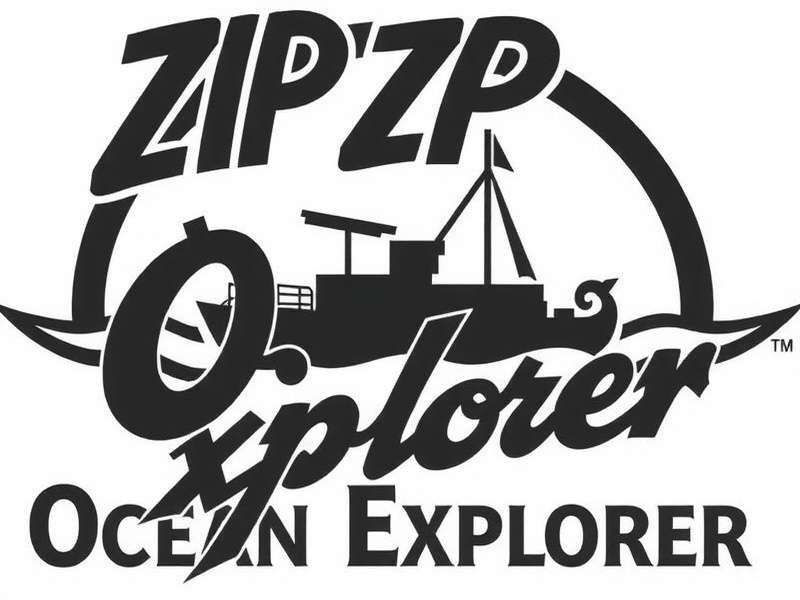
Welcome to the complete guide to Zip Ocean Explorer – the game that's making waves across India! Launched in 2022 by Zip Studios India, this marine adventure mobile game has captured the imagination of millions with its stunning depiction of India's diverse coastal ecosystems, from the Arabian Sea to the Bay of Bengal.
Whether you're a fisherman's kid from Kerala, a student in Mumbai, or a nature lover in Chennai, Zip Ocean Explorer offers something unique: a chance to explore the mysterious depths of India's oceans, discover rare marine life, and connect with the rich coastal traditions of our nation. Let's dive into what makes this game a must-play for every Indian mobile gamer!
📥 Download Zip Ocean Explorer Now 🔑 Login to Your AccountIntroduction to Zip Ocean Explorer
Zip Ocean Explorer is a free-to-play mobile game developed by Zip Studios India, a team of marine biologists, game designers, and cultural experts. Launched in September 2022, the game was born from a simple idea: to showcase India's incredible marine biodiversity while creating an engaging gaming experience for all ages.
Unlike generic ocean games that focus on international waters, Zip Ocean Explorer is uniquely Indian. It lets players explore 12 distinct marine zones around India, each modeled after real locations – from the coral reefs of Lakshadweep to the mangroves of the Sunderbans, and from the deep waters off Odisha to the fishing grounds of Gujarat.
In just three years, Zip Ocean Explorer has become a cultural phenomenon in coastal India and beyond. Parents love it for its educational value, kids adore the colorful sea creatures, and fishermen appreciate the accurate depictions of their daily lives. It's more than a game – it's a celebration of India's relationship with the ocean.
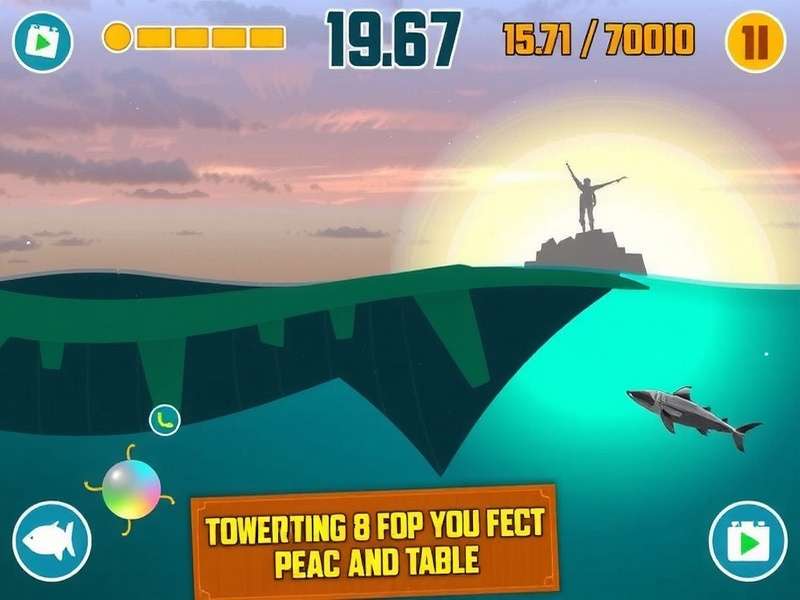
What truly sets Zip Ocean Explorer apart is its commitment to authenticity. The developers worked with India's National Centre for Coastal Research (NCCR) to ensure every marine species, coral type, and ocean current is accurately represented. They also collaborated with coastal communities to include traditional knowledge – like how Keralite fishermen read the tides or how Tamil Nadu's pearl divers identify oyster beds.
Whether you're exploring sunken temples off the coast of Mahabalipuram or helping conserve Olive Ridley turtles in Odisha, Zip Ocean Explorer offers a unique blend of entertainment and education that resonates deeply with Indian players.
Gameplay Mechanics of Zip Ocean Explorer
Core Gameplay Loop
The heart of Zip Ocean Explorer revolves around three main activities: exploring the ocean, documenting marine life, and completing conservation missions. This loop is designed to be flexible, allowing players to enjoy short 10-minute sessions during their chai break or longer expeditions on weekends.
Players start with a basic research vessel (modeled after India's traditional "vallam" boats in some regions) and gradually upgrade to more advanced equipment as they progress. Each dive or expedition consumes "Energy," which refills over time – a system that encourages regular but balanced play, perfect for India's busy lifestyle.
The controls are simple and intuitive: a virtual joystick to navigate underwater, tap to interact with creatures, and swipe to take photos or collect samples. This easy-to-learn system works smoothly even on budget Android phones, ensuring that players across India can enjoy the game regardless of their device.
Exploration & Discovery
Exploration is at the core of Zip Ocean Explorer. India's waters are divided into 12 unique zones, each with its own ecosystem, challenges, and secrets:
• Lakshadweep Reefs: Vibrant coral gardens teeming with clownfish, parrotfish, and sea turtles. Players must navigate through coral mazes to find hidden grottos.
• Sunderbans Mangroves: Murky waters filled with saltwater crocodiles and Bengal tigers that swim between islands. Visibility is low, making exploration tricky but exciting.
• Arabian Sea Fishing Grounds: Busy waters where players can observe traditional fishing practices of Kutch and Kerala, and even help fishermen avoid overfishing.
• Andaman Deep Trenches: Dark, mysterious depths with bioluminescent creatures and rare species like the coelacanth, a living fossil found off India's eastern coast.
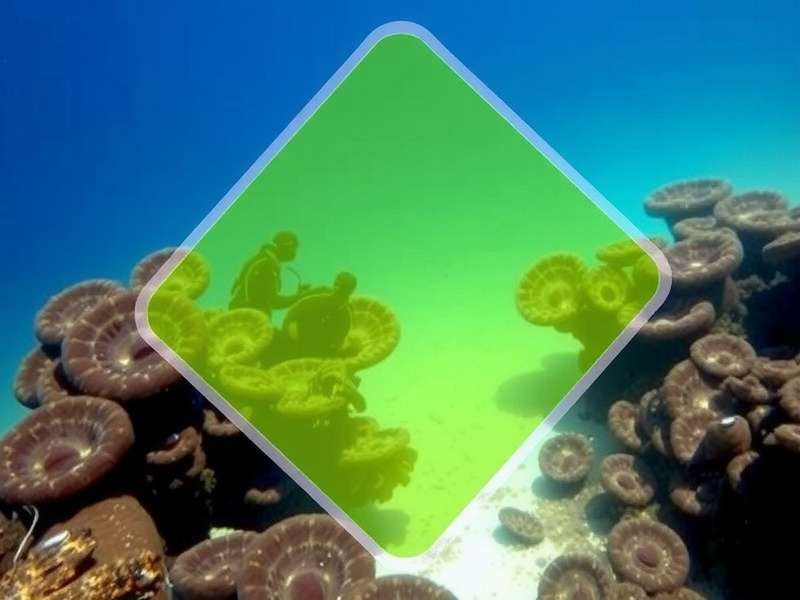
Each zone unlocks as players progress, with new challenges based on real environmental issues. For example, the Gulf of Mannar zone features plastic pollution that players must help clean up, while the Bay of Bengal zone includes cyclone aftermath scenarios where players rescue stranded marine life.
Marine Life Collection & Conservation
Documenting marine life is a key part of Zip Ocean Explorer. Players carry a "Marinepedia" that records every species they encounter, with detailed information in both English and regional languages. India's waters are home to over 2,000 marine species, and the game features 350+ of them, from common fish to rare creatures like the dugong (sea cow) and the Indian sawfish.
Some of the most popular creatures among Indian players include:
• Ganges River Dolphin: A freshwater dolphin found in the Ganges-Brahmaputra delta, known locally as "susu." In the game, it helps players find hidden underwater caves.
• Olive Ridley Turtle: Famous for their mass nesting in Odisha. Players can participate in protecting their eggs from predators and poachers.
• King Crab: A delicacy in coastal states like Maharashtra and Goa. The game highlights sustainable fishing practices to protect their population.
• Makara: A mythical sea creature from Hindu mythology, part fish and part crocodile. It appears during special events and grants bonus rewards.
Conservation missions are where Zip Ocean Explorer truly shines. Players might plant mangroves to prevent coastal erosion, remove ghost nets that trap marine life, or educate virtual fishermen about sustainable practices. Completing these missions earns "Eco-Points," which can be used to unlock better equipment or support real-world marine conservation projects (a portion of in-game purchases goes to Indian NGOs like the Marine Conservation Society of India).
Game Modes
Zip Ocean Explorer offers multiple game modes to keep players engaged:
• Story Mode: A campaign that follows Dr. Meera, an Indian marine biologist, as she uncovers the mysteries of India's oceans. Episodes are set in different states, with local characters and cultural references.
• Expedition Mode: Time-limited challenges where players explore specific areas to find rare species or solve environmental crises. Popular among competitive players in India.
• Community Challenges: Weekly events where players across India collaborate to achieve a common goal, like cleaning 1 million tons of virtual plastic or documenting 500,000 species. Winners get regional bragging rights and in-game rewards.
• Fishing Simulator: A relaxed mode where players can experience traditional fishing methods from different Indian states – from Kerala's "kadal vannam" (sea fishing) to Bengal's "jalkuri" (pond fishing).
Zip Ocean Explorer in India: Download Stats & Player Base
Key Download Statistics in India (as of October 2025)
• Total downloads: 120 million+ (Google Play + Apple App Store)
• Active monthly users (MAU): 30 million
• Daily active users (DAU): 8 million
• Top states by downloads: Maharashtra, Tamil Nadu, Kerala, Gujarat, Odisha
• Most popular cities: Mumbai, Chennai, Kochi, Ahmedabad, Bhubaneswar
Zip Ocean Explorer has seen remarkable growth since its launch, especially in coastal states where ocean culture runs deep. In Kerala, it's the most downloaded game in the education category, with over 15 million downloads – that's nearly 40% of the state's smartphone users!
One reason for its popularity is its accessibility. The game's "Basic Mode" requires just 75MB of storage and runs smoothly on devices with 2GB RAM – crucial in a country where 60% of smartphones are budget models. The developers also optimized the game for patchy internet, allowing players to download ocean zones one at a time rather than all at once.
Demographically, Zip Ocean Explorer has a surprisingly broad player base. While 55% are male and 45% female, the age distribution is spread out: 25% are 10-18 years old (using it for school projects), 40% are 19-35 years old (playing for entertainment), and 35% are 36+ (enjoying the relaxed gameplay and cultural references).
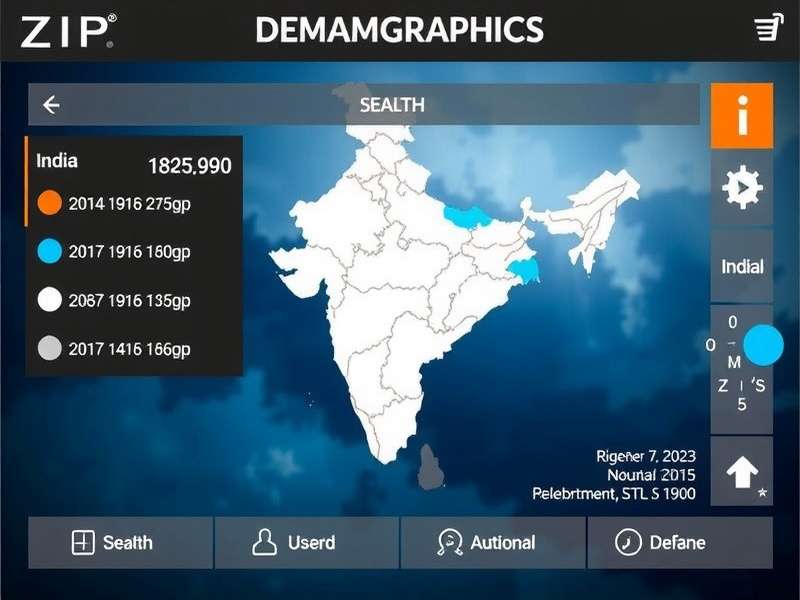
Schools in coastal areas have even started using Zip Ocean Explorer as an educational tool. Over 3,000 schools in Tamil Nadu, Kerala, and Maharashtra include the game in their environmental science curriculum, using its Marinepedia to teach students about local marine life.
The game's social media presence in India is impressive too. The official Instagram page has 6.2 million followers, with most posts featuring real photos of Indian marine life alongside their in-game counterparts. The Hindi and Tamil YouTube channels have 3.5 million and 2.8 million subscribers respectively, with popular videos including "How to Find Dugongs in Andaman" and "Top 10 Mythical Sea Creatures in Indian Folklore."
📱 Download for Android (India) 🍎 Download for iOS (India)Localization: How Zip Ocean Explorer Adapts to Indian Markets
What makes Zip Ocean Explorer truly special is its deep localization – not just translating text, but creating an experience that feels uniquely Indian. The developers spent two years researching coastal communities before launch, and it shows in every aspect of the game.
Language Support
Zip Ocean Explorer supports 14 Indian languages, more than any other marine game in the country. This includes:
• Hindi (spoken by 40% of Indian players)
• Tamil (popular in coastal Tamil Nadu and Puducherry)
• Telugu (Andhra Pradesh and Telangana coasts)
• Malayalam (Kerala and Lakshadweep)
• Gujarati (Gujarat's long coastline)
• Bengali (Sunderbans region)
• Odia (Odisha's turtle nesting beaches)
• Marathi (Maharashtra's coastal cities)
• Konkani (Goa and Konkan coast)
• Kannada (Karnataka's coastal districts)
Translations are culturally nuanced. For example, the term "marine biologist" is translated to "samudra jiv vigyan expert" in Hindi, while in Tamil it becomes "kadal uyir vidya arignar" – terms that feel natural to local speakers. Fish names use local dialects too: a "tuna" is called "choora" in Malayalam, "thora" in Tamil, and "dhoodhi" in Gujarati.
Cultural Adaptations
Zip Ocean Explorer is filled with Indian cultural references that resonate with local players:
• Mythological Creatures: Alongside real marine life, the game includes creatures from Indian mythology like the Makara (a sea monster that's the mount of Varuna, the god of water), the Jaladevi (water spirits from Bengali folklore), and the Naga (serpent beings that live in underwater palaces).
• Coastal Festivals: The game's calendar includes virtual celebrations of India's coastal festivals. During Maharashtra's Narali Purnima, players collect coconut offerings to gain bonuses. For Tamil Nadu's Pongal, they help virtual fishermen thank the sea with traditional rituals.
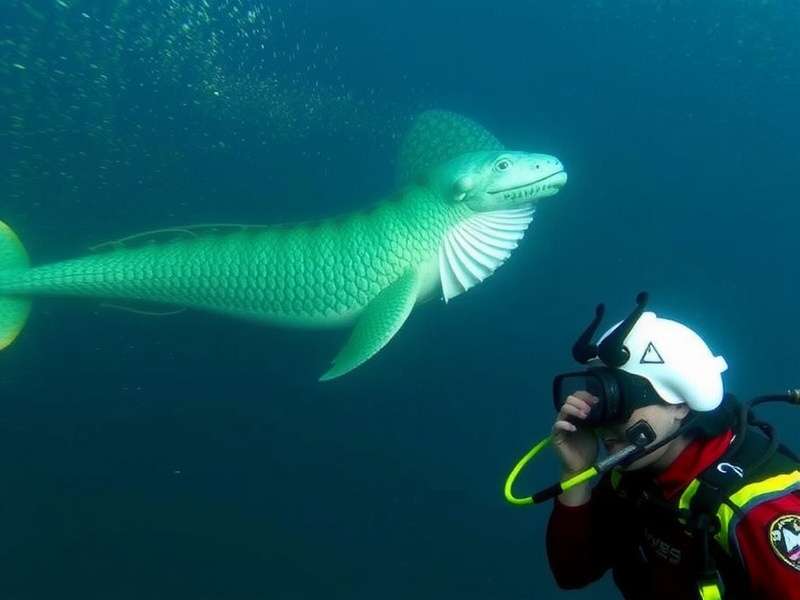
• Traditional Boats: Players can unlock region-specific boats like Kerala's "vallam" (snake boat), Gujarat's "bunder boat," and Tamil Nadu's "catamaran." Each has unique abilities – snake boats are fast but hard to maneuver, while catamarans are stable in rough seas.
• Local Knowledge: The game includes tips from real fishermen, like "When the moon is full, the sardines come closer to shore" (a Konkani saying) or "If the sea turns green, a storm is coming" (from Odisha's fishing communities).
Monetization Adaptations
Understanding India's diverse payment habits, Zip Ocean Explorer offers flexible monetization options:
• Regional Pricing: In-game purchases are priced for India's market, with most items costing between ₹5 and ₹500. The "Ocean Pass" (a monthly subscription) is just ₹99, making it affordable for most players.
• Local Payment Methods: Players can pay using UPI (Google Pay, PhonePe, Paytm), mobile recharge, or even cash through Paytm Wallet. In rural areas, "missed call payments" allow players to buy in-game items by giving a missed call to a toll-free number.
• Value Packs: Special packs tied to festivals, like the "Onam Boat Pack" or "Diwali Dive Pack," offer more value than regular items and are very popular during celebration seasons.
• Referral Programs: Players get free rewards for inviting friends – a strategy that's worked wonders in India's social gaming culture. Over 40% of new users come through referrals from friends or family.
Player Reviews & Community Feedback on Zip Ocean Explorer
With over 950,000 reviews on Google Play India, Zip Ocean Explorer holds a solid 4.5-star rating – impressive for a game that balances education and entertainment. Let's look at what Indian players are saying.
Positive Feedback
Many players praise the game's educational value. A teacher from Chennai wrote: "My students love learning about marine life through this game! They now recognize fish species when we go to Marina Beach. The Tamil translations are perfect and help rural students understand better."
Coastal players appreciate the authentic details. A fisherman's son from Kochi shared: "This game shows exactly how our boats work and which fish we catch in the Arabian Sea. My father was surprised to see the 'karimeen' (pearl spot) fish with all its correct features. Very realistic!"
Parents love the family-friendly content. A mother from Mumbai commented: "Finally, a game my 8-year-old and 14-year-old can play together! My younger one loves collecting turtles, and my older one enjoys the conservation missions. I even play sometimes to learn about our oceans."
Players from inland areas also enjoy the game. A student from Delhi said: "I've never seen the ocean, but this game makes me feel like I'm there! The 3D graphics of Lakshadweep reefs are stunning. Now I want to visit there someday."
Constructive Criticism
No game is perfect, and Zip Ocean Explorer has received some feedback for improvement. One common request is for more regional content.
A player from West Bengal wrote: "Please add more about the Sunderbans! We have unique dolphins and tigers there, but they're not featured enough. Also, Bengali voiceovers would make the game even better."
Some players mention technical issues in remote areas. A user from Andhra Pradesh commented: "I love the game, but in our village, the internet is slow. Downloading new ocean zones takes hours. Please make the files smaller!"
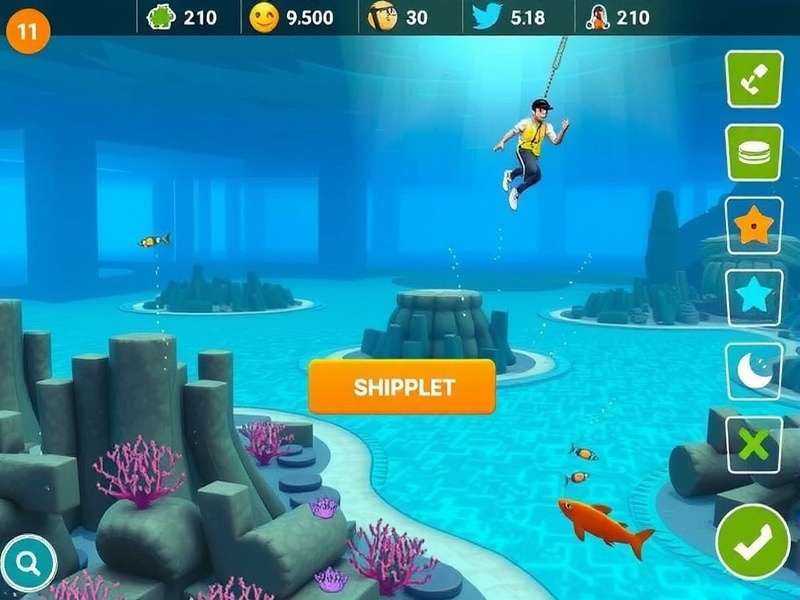
The developers have been responsive to this feedback. In 2024, they released a major Sunderbans update with new species and Bengali voice acting. They also introduced "Ultra-Lite Zones" – compressed versions of ocean areas for players with slow internet, reducing download sizes by 60%.
Community Discussions
The Zip Ocean Explorer community in India is vibrant and active across platforms:
• WhatsApp Groups: There are over 35,000 active WhatsApp groups, many organized by language or state. The Tamil Nadu group has 120,000 members who share tips on finding rare pearl oysters.
• Facebook Communities: The largest group, "Indian Ocean Explorers," has 1.8 million members. Players share photos of real marine life they've spotted, compare them to in-game versions, and organize beach cleanups.
• YouTube Channels: Indian content creators have made over 80,000 videos about the game. Popular channels like "Kerala Ocean Gamer" and "Marathi Marine Explorer" focus on regional content, with some videos getting 5+ million views.
• School Competitions: Many schools organize Zip Ocean Explorer tournaments, where students compete to document the most species or complete conservation missions fastest. The 2024 national finals in Chennai were attended by 500 schools.
Indian Player Guides for Zip Ocean Explorer
Indian players have developed unique strategies for Zip Ocean Explorer, tailored to the game's Indian content and regional challenges. Here are some top tips from experienced players:
Best Exploration Routes for Indian Zones
Seasoned players know the best paths to maximize discoveries in each Indian zone:
• Lakshadweep Reefs: Start at sunrise (in-game time 6-8 AM) when coral fish are most active. Follow the parrotfish – they lead to hidden coral gardens with rare species.
• Sunderbans: Use the "tide tracker" (unlocked at level 12) to explore during high tide, when crocodiles are less aggressive. Stay near mangrove roots to find the Ganges dolphin.
• Gujarat Coast: Visit during full moon nights (in-game) to spot olive ridley turtles coming to shore. The best spots are near the Gulf of Kutch, but be careful of fishing nets!
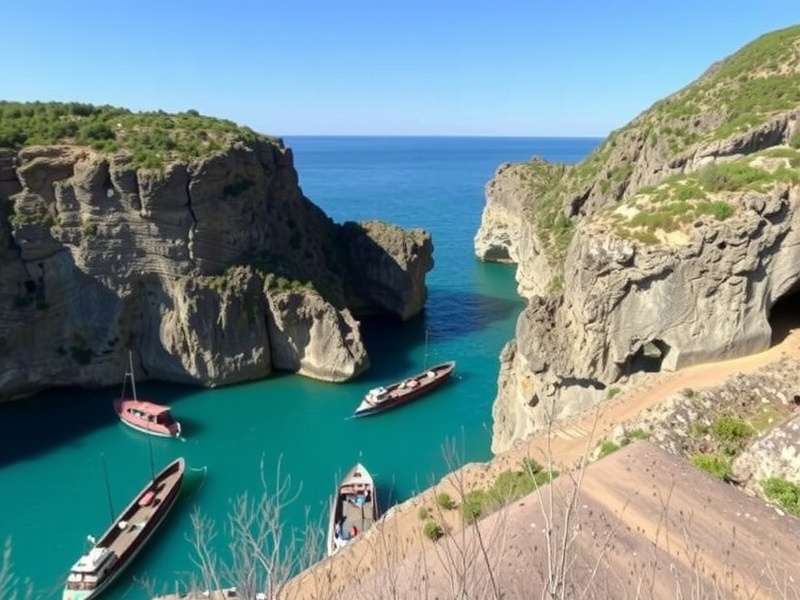
Festival Event Strategies
Indian players have mastered maximizing rewards during Zip Ocean Explorer's festival events:
• Narali Purnima (Maharashtra): Collect as many coconuts as possible during the day. Offer them at the virtual temple between 7-9 PM IST for double rewards. Team up with 3-4 players to cover more area.
• Onam (Kerala): The snake boat race minigame gives extra rewards if you use the "vallam" boat skin. Practice the race in free mode first – the controls are tricky but rewarding once mastered.
• Pongal (Tamil Nadu): Focus on the "harvest祭り" missions where you help fishermen collect their catch. Completing these between 9-11 AM IST gives bonus "sugarcane points" to unlock the special Pongal boat.
Energy Management for Indian Players
Energy is precious in Zip Ocean Explorer, and Indian players have found ways to make the most of it:
• Chai Break Refills: The game offers free energy refills at 11 AM, 3 PM, and 7 PM IST – perfect for India's typical tea break times. Set reminders to log in and claim them!
• Monsoon Mode Advantage: During India's monsoon season (June-September), the game's "Monsoon Bonus" gives 20% extra energy. Save big exploration missions for these months.
• Regional Time Zones: Players in eastern India (like West Bengal) get energy refills 30 minutes earlier than western India. Use this to your advantage by planning dives before peak server times.
Free-to-Play Progress Tips
Many Indian players enjoy Zip Ocean Explorer without spending money, using these strategies:
• Daily Login Rewards: Never miss a day! Logging in consecutively for 7 days gives a free "Eco-Box" with valuable items. Over a month, this adds up to enough resources for a boat upgrade.
• Community Challenges: Even if you can't contribute much, participating in weekly community challenges gives guaranteed rewards. Join a local guild to share tips and split the work.
• Sell Extras Wisely: You can sell duplicate fish samples, but wait for "Market Boost" days (usually weekends) when prices are 50% higher. Save rare samples for research missions instead.
• School Partnerships: Many schools have codes for free in-game items. Ask your child's school if they're part of the Zip Ocean Explorer education program – it's free to join!
▶️ Login to Try These StrategiesLocal Events & Promotions in Zip Ocean Explorer
Zip Ocean Explorer's events calendar is packed with Indian festivals and regional promotions, making the game feel connected to local life throughout the year.
Festival Events
Narali Purnima Special (August): Maharashtra's coconut festival gets a big celebration in the game. Players collect virtual coconuts to offer at sea temples, unlocking the "Coconut Boat" skin and a rare "King Coconut Crab" creature. The event ends with a virtual beach feast where players share their catches.
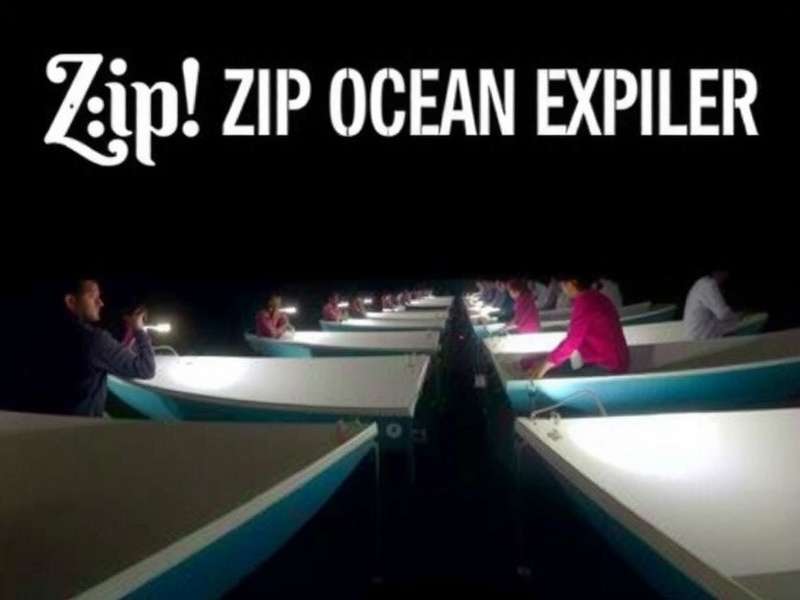
Onam Boat Festival (August/September): Kerala's famous boat race comes to life in the game. Players race snake boats through backwater-inspired courses, with power-ups like "palm leaf wind" and "coconut boost." Winners get a "Vallam Kali Champion" badge and exclusive fish species from Kerala's backwaters.
Olive Ridley Festival (February): Celebrating Odisha's turtle nesting season, this event lets players protect virtual turtle eggs from predators and poachers. Successful protectors earn the "Turtle Guardian" title and can release baby turtles into the ocean – a heartwarming moment that's a fan favorite among Indian players.
Pongal Sea Harvest (January): Tamil Nadu's harvest festival features missions where players help fishermen collect their catch and thank the sea. The highlight is the "Jallikattu of the Sea" minigame, where players wrangle large marlin fish – a nod to Tamil Nadu's famous bull-taming sport, but with a marine twist!
Regional Promotions
Zip Ocean Explorer partners with Indian brands for unique promotions:
• Amul Collaboration: During World Milk Day (June 1), players can collect "Amul Sea Creature" skins, with proceeds going to marine conservation. The "Butterfish" and "Milk Sea Turtle" are especially popular in Gujarat.
• Coca-Cola Summer Splash: Each summer, codes under Coca-Cola bottle caps unlock free diving equipment. In 2024, over 2 million players redeemed these codes, making it one of the game's most successful promotions.
• State Tourism Boards: Partnerships with Kerala Tourism and Lakshadweep Tourism offer in-game rewards for visiting real tourist spots. Players who take photos at Kerala's Kovalam Beach can upload them to get a free "Beach Explorer" pack.
• Fisheries Department Collaboration: The game works with India's Fisheries Department to promote sustainable fishing. Players who complete "Sustainable Catch" missions get certificates that can be used to get discounts on fishing equipment in real life (in participating states).
Player Meetups & Conservation Drives
What makes Zip Ocean Explorer unique is its blend of virtual and real-world activities:
• Beach Cleanups: The game organizes monthly beach cleanups across India, with over 50,000 players participating in 2024. Players who attend get exclusive in-game items, and the most active volunteers are featured in the game's loading screens.
• Marine Workshops: In partnership with local NGOs, the game hosts workshops on marine conservation. These are especially popular in schools, with over 1,000 workshops held in coastal districts in 2025 alone.
• Regional Tournaments: The "Ocean Cup" is held in 10 coastal cities, with the grand finale in Kochi. Players compete in exploration challenges, with the winner getting a trip to the Andaman Islands to see real marine life. The 2024 winner was a 17-year-old from Chennai!
Technical Aspects: Performance & Updates in India
Zip Ocean Explorer is designed specifically for India's diverse technical landscape, with features that ensure smooth gameplay across the country.
Server Infrastructure
The game operates 10 dedicated servers in India, located in Mumbai, Chennai, Kochi, Ahmedabad, and Bhubaneswar. This ensures low latency (under 60ms) for most players, even in remote coastal areas.
For players with poor internet, Zip Ocean Explorer offers an "Offline Mode" where they can explore previously downloaded zones and complete certain missions. Progress syncs automatically when internet is restored – a crucial feature for players in rural areas with intermittent connectivity.
Servers are specially upgraded before major festivals. During Narali Purnima 2024, the Mumbai server capacity was doubled to handle the 300% increase in players, ensuring no lag during peak times.
Device Optimization
Understanding that many Indian players use budget smartphones, Zip Ocean Explorer offers multiple graphics settings:
• Ultra-Lite Mode: For devices with 2GB RAM or less, this mode reduces textures and disables animations, but keeps core gameplay intact. It uses just 75MB of storage and 150MB of RAM.
• Standard Mode: For mid-range devices, balancing quality and performance. Most Indian players use this mode.
• HD Mode: For high-end devices, with detailed textures and realistic water effects. Popular among urban players with flagship phones.
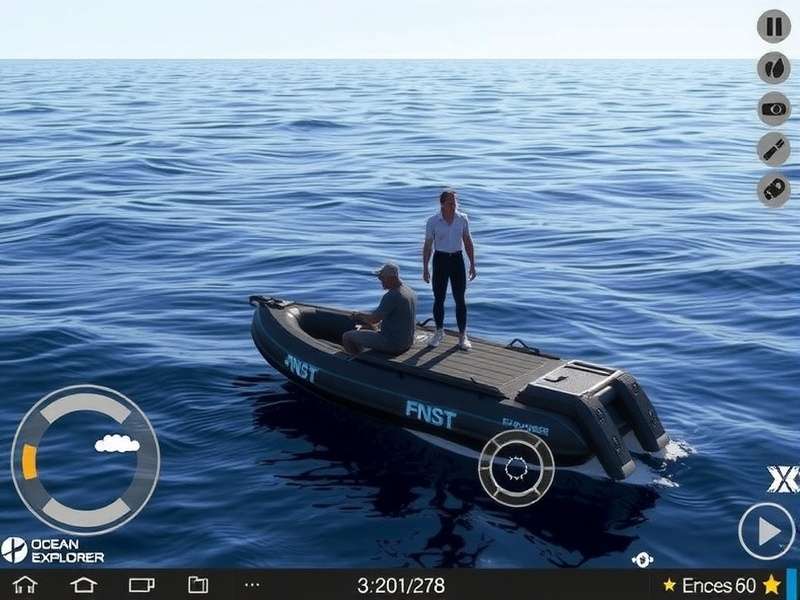
The game also uses "progressive downloading," where only the first ocean zone is downloaded initially (75MB). Other zones download in the background as players progress, allowing them to start playing within 5 minutes of installation – perfect for players with limited data plans.
Update Schedule
Zip Ocean Explorer follows a regular update schedule tailored to Indian players:
• Major updates every 3 months, usually timed with big festivals (like the Onam update in August or the Pongal update in January).
• Minor updates every 2 weeks, fixing bugs and adding small events.
Updates are released between 2-5 AM IST to avoid peak playing times, and players get 1000 in-game coins for updating within 48 hours – a strategy that ensures 90% of players are on the latest version within a week.
Update notes are available in all 14 supported languages, with video explanations on YouTube in Hindi, Tamil, and Malayalam. The developers also host live streams on Instagram (in regional languages) to explain new features – these streams often get 50,000+ viewers.
Future of Zip Ocean Explorer in India
The future looks bright for Zip Ocean Explorer in India, with exciting plans for 2026 and beyond:
• New Regional Zones: The developers plan to add the Andaman and Nicobar Islands as a major new zone, featuring unique species found only in those waters. They're also working on a "Ganges Delta" zone focusing on freshwater marine life.
• VR Integration: Testing virtual reality features that let players "dive" using affordable VR headsets like Pico. This will launch first in metro cities before expanding to smaller towns.
• Education Expansion: Partnering with India's Ministry of Environment to create curriculum-aligned content for schools. This will include interactive lessons on marine biology and conservation, tied to the game's missions.
• Esports for Conservation: Launching a national tournament where teams compete to solve virtual environmental crises. The prize money will fund real conservation projects in the winning team's state – a unique blend of gaming and social impact.
• Localized Characters: Adding more regional characters, like a Tamil pearl diver, a Gujarati fisherwoman, and a Bengali mangrove expert, each with their own storylines and missions.
With its deep connection to India's coastal culture and commitment to both entertainment and education, Zip Ocean Explorer is poised to remain a beloved game in India for years to come. It's more than just a game – it's a celebration of India's rich marine heritage.
🚀 Join the Zip Ocean Explorer Community in India